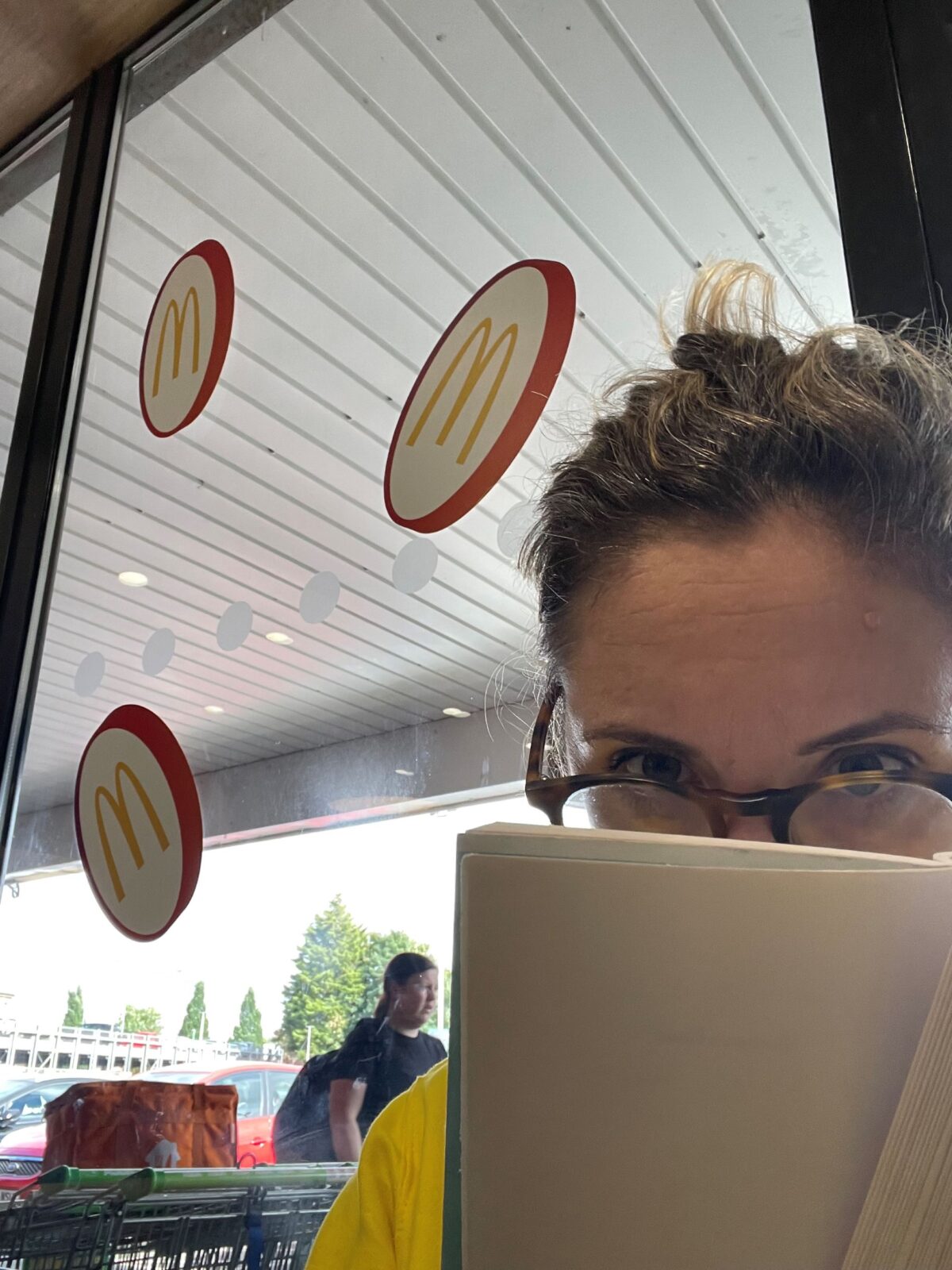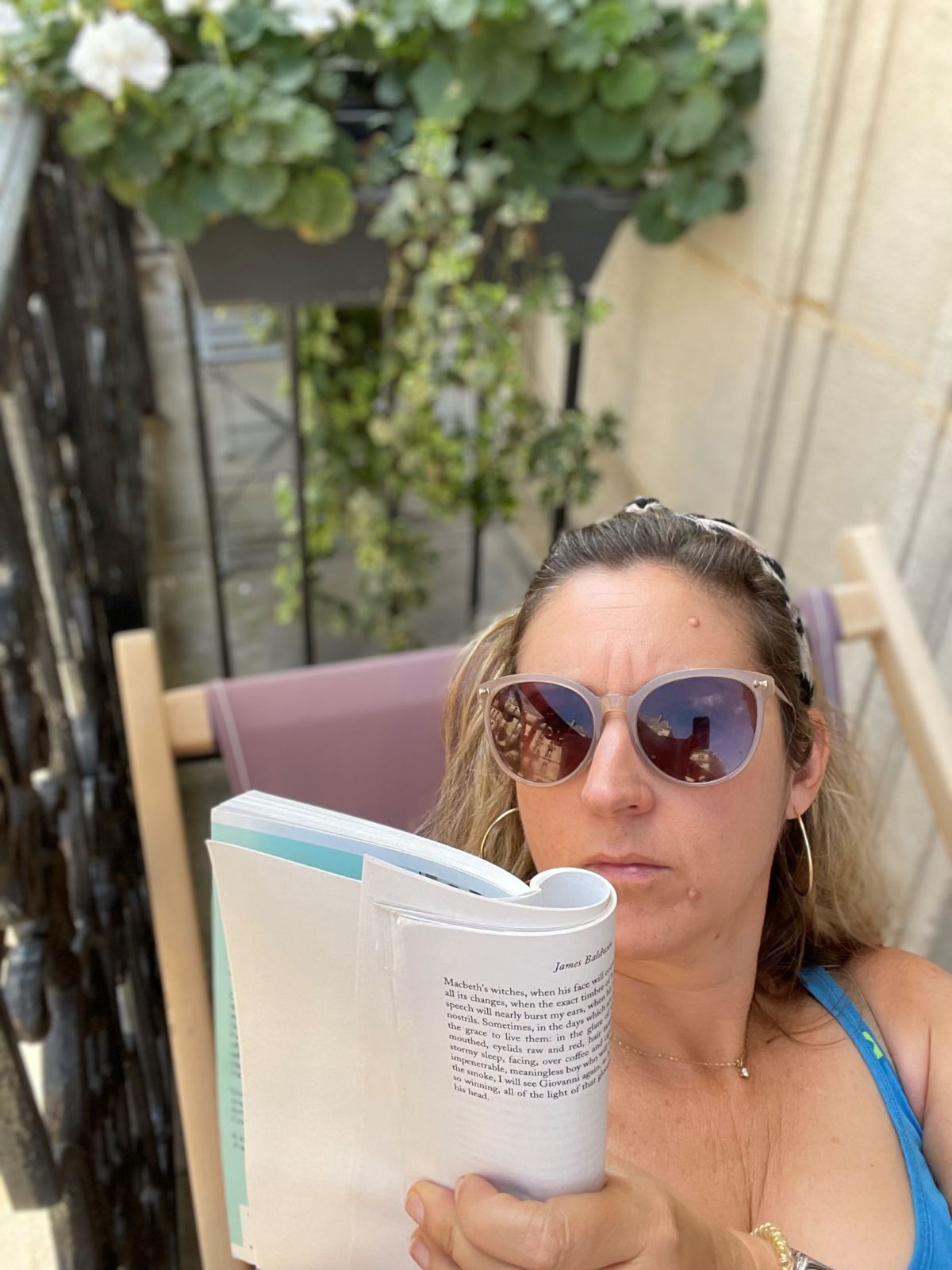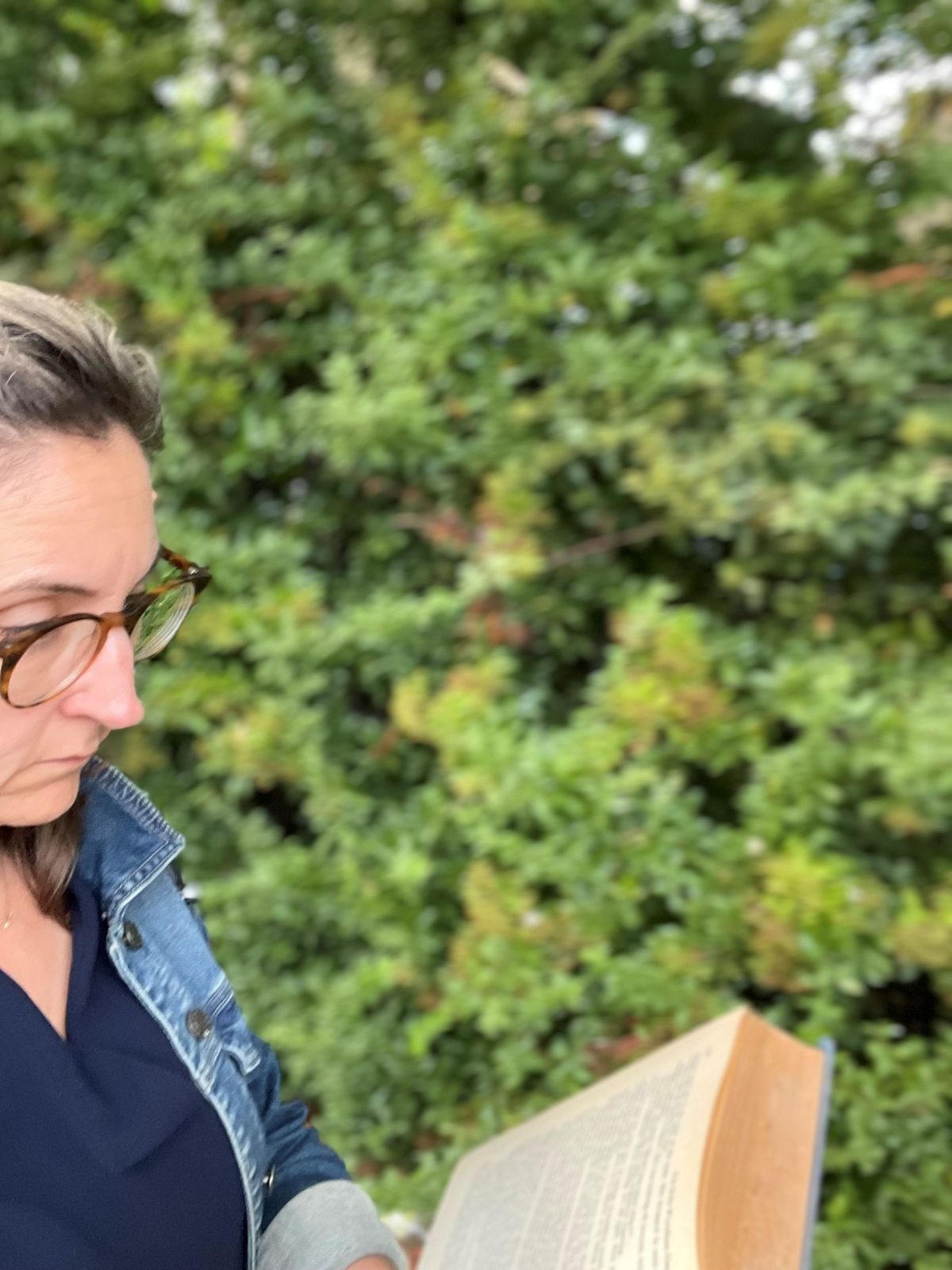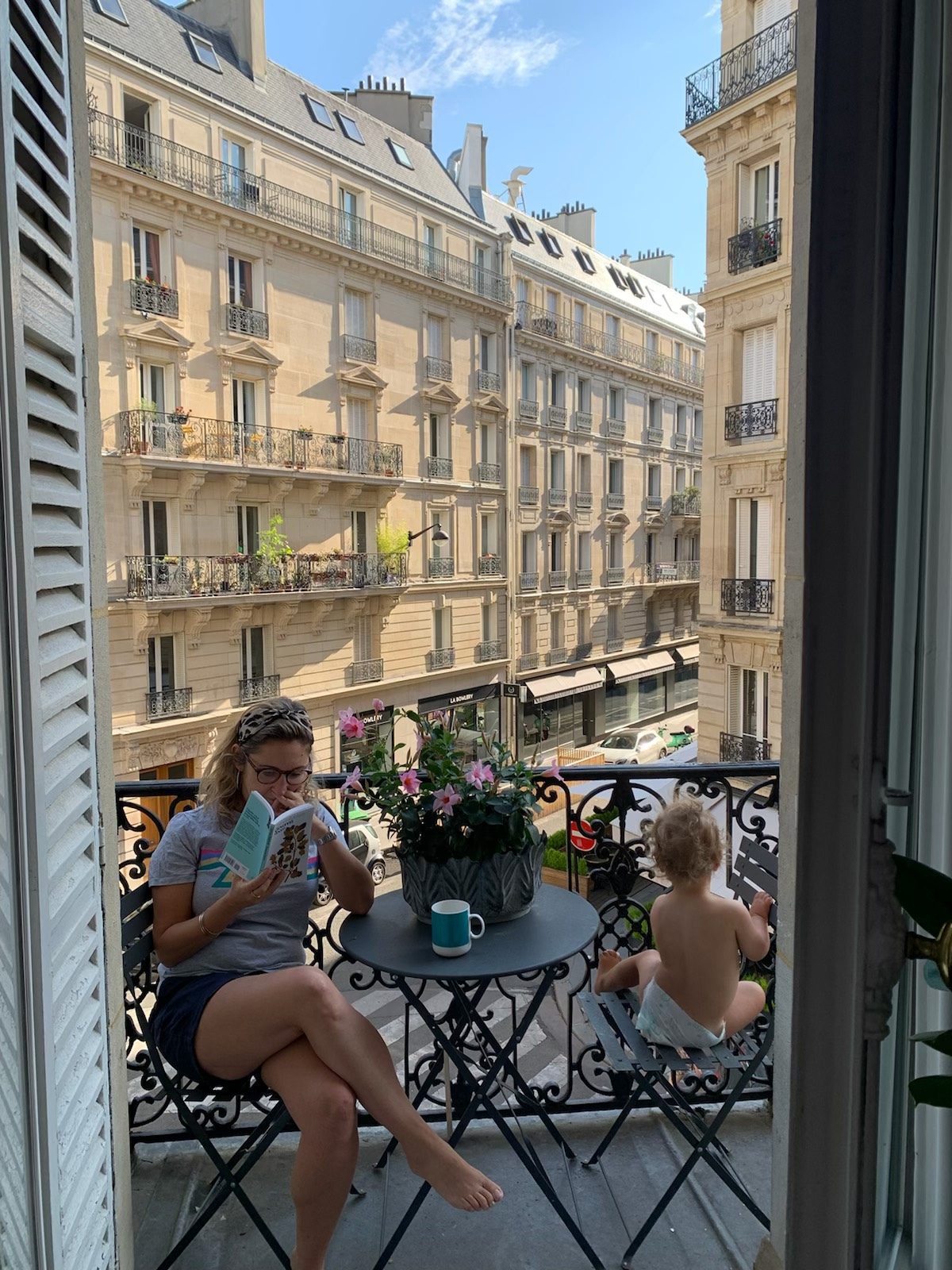This is a beloved book of the 1970s. I was not feeling it. It is a cheerful and allegedly comic book about a pair of cousins who fall in love. It sounds like it should have an interesting plot but not so much. Also I found it sort of light and easy to read but not very funny. So, meh.
Year: 2022
SISTERS BY A RIVER by Barbara Comyns
I am really getting into this writer big time. This book is apparently semi-autobiographical and if so: wow. It tells about a family of sisters growing up in a crumbling mansion who are left pretty much to their own devices. Try this story of how their parents got together:
. . . he thought she looked very nice so he said ‘When you grow up I will marry you ask your Mother to teach you how to cook’ He bought her a goat and a white kitten to remember him by, but the goat burst and the kitten was run over by a train . .
The book is full of strange, fanciful stuff, a weird evocation of childhood, where you don’t know quite what is real and what is not. And when you accept what is happening around you is normal:
Once when Beatrix was a baby he (their father) got so furious because of her crying her threw her down the stairs, fortunately a cook called Harriat caught her . . after that Harriat kept her in her bedroom at night so that he couldn’t hear her crying which was a good thing in case there hadn’t been anyone to catch her the next time, but Harriat had to leave soon after because her feet smelt.
I mean: ?!? Comyns went on to have an inspirationally varied life: lived everywhere, worked multiple jobs (many of them bizarre), struggled with the rent, failed as a painter, succeeded as a writer. What a woman, what an example to us all.
THE KRAKEN AWAKES by John Wyndham
I usually like the author John Wyndham, but here it’s like he was over-tired being his worst self. It’s super wordy, and kind of fakey, and people keep calling each other ‘darling.’ The premise is great, being about aliens hatching out of the deep sea, rather than deep space, a creepy and horrifyingly believable idea, but told so incredibly slowly that I can’t recommend it.
QUARTET IN AUTUMN by Barbara Pym
Here is a novel about how you ought to love your co-workers. It tells the story of four older people, two men and two women, working in an office together. None have any close family, and all live alone. They spend all day together, do not have much use for holidays, and yet do not make much effort to get to know each other. They begin to retire, and are at a loss without work and each other. Okay, that’s not really true: it’s far more subtle and sad than that sentence suggests; but it’s more or less what happens.
It’s a remarkably good novel about many things, among them lost opportunities and what your life amounts to. Pym is an amazing writer, and it’s mind-blowing that this novel, written in 1977, just before her death, was her first to be published in 16 years. Her agent had rejected her last, and this had apparently silenced her for a couple of decades. She got her own back, getting a Booker nomination, so BOOM.
SELECTED STORIES by Dorothy Parker
Surprisingly feminist set of short stories, written in the 1930s. Not so fun as I thought they would be. I thought Parker was supposed to be a comic author but in fact these are acidic and rather sad, and deal with difficult subjects (like really difficult, like backstreet abortions), almost as if being female in the 1930s was not always all that easy.
GIOVANNI’S ROOM by James Baldwin
Here is a completely searing 149 pages about the consequences of cowardice. A young American man meets a young American woman in Paris. He then meets an Italian waiter who he greatly, greatly prefers. It is the 1940s and he has spent many years trying to convince himself he is straight. Then he meets the waiter, Giovanni, and that’s all over: they move in together the first night. The agonizing that ensues is just horrifying. Baldwin is an AMAZING WRITER. Lets enjoy this conversation with his father, after a car accident:
“You’re going to be on your back for awhile but when you come home, while you’re lying around the house, we’ll talk, huh? And try to figure out what the hell we’re going to do with you when you get on your feet, OK?”
“OK,” I said.
For I understood, at the bottom of my heart, that we had never talked, that now we never would. I understood that he must never know this.
Eventually the American beaks the waiter’s heart, and his own, by deciding he can’t face what constituted gay life at that time. It was sad, but then try this, his last big speech to the waiter:
What kind of life can two men have together, anyway? All this love you talk about – isn’t it just that you want to be made to feel strong? You want to go out and be the labourer and bring home the money and you want me to stay here and wash the dishes and cook the food and clean this miserable little closet of a room . . and be your little girl. That’s what you want. That’s what you mean that’s all you mean when you say you love me. You say I want to kill you. What do you think you’ve been doing to me?
It’s interesting how clearly men knew how really bad patriachy was. This was a huge personal cost to the man, but he was willing to do it: anything, anything, rather than be female. I get it.
ACTS OF INFIDELITY by Lena Andersson
ACTS OF INFIDELITY is the sequel to the wonderful WILFUL DISREGARD, and the central character, Esther, is once again in love. It’s totally scarring. As the author says:
What has happened will happen again sooner or later, somewhere, sometime. And it’s likely that it will happen again to the same person because people have their patterns.
Esther is once again in love with an unavailable man, who acts as if he might be available. Putting it like this, you feel like you wouldn’t have sympathy with her, but you totally do. She tries so hard not to make the same mistakes as last time, but she does.
Friends always told Esther that men don’t leave their wives, but things had to change for her at some point. No two people were identical. If she kept trying, one fine day the course of events would align with her view of how the world should be.
Esther is a serious person, not a pathetic teenager, despite the fact that she acts a bit like a pathetic teenager. Please enjoy this sample of her misery, where she is thinking of giving up on a book she is writing
The world had enough books already and even if excess was a prerequesite for exceptional specimens she didn’t have to contribute to the rubbish so that the flowers of others could grow on the dump. She pushed through and stayed her course a little longer. Nothing ever got done if you thought it was meaningless. In order to have the energy to care about life itself, you had to exaggerate its importance.. . . When no reply came, she fell into a torture chamber. From down there, she called Olaf and asked how he was doing.
“Fine thanks. Just great. The birds are chirping, it’s spring”
THE CHRYSALIDS by John Wyndham
In this novel of the far future, a small rural community has made a religion out of ensuring that all human beings are recognizably human. This means some tough decisions about newborns with too many toes. That’s right, it’s the post-nuclear future!
I read this first as a teenager, and I note I feel much less worried now than I did then about the nuclear apocalypse. Largely because I am pretty sure we will get to a climate apocalypse long before a nuclear one. So that’s good.
MEATY by Samantha Irby
Just a re-read of this.
CARNIVAL OF SNACKERY by David Sedaris
These are David Sedaris’ dairies from 2003 to 2020. This is not very personal stuff; clearly he is doing this more or less professionally, as prep for his essays. In his first diaries, he is poor and struggling; in these he is wealthy and successful, moving between his different homes around the world. Astonishingly, they are just as likable. It’s interesting to see what someone’s daily life is made up of, but it’s also interesting to see how much less enjoyable these are than the essays. It’s weird to see the magic that moves daily experience into dairies and then essays.









